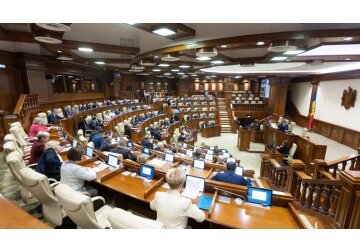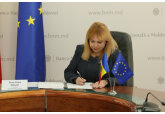
The Parliament of the Republic of Moldova approved the 4th package for de-bureaucratization and facilitation of business activities, which will save 183 million lei per year.
In particular, deputies in the first reading adopted draft amendments to some regulations aimed at promoting entrepreneurial activity. This is already the 4th approved package, the purpose of which is to eliminate administrative barriers, unreasonable or outdated requirements, helping to reduce the costs of economic agents in their business activities and limiting corrupt practices. In particular, at the initiative of the Ministry of Economic Development and Digitalization, changes will be made to 12 regulations, laws that cover various areas: government procurement and commodity exchanges, construction and urbanization, consumer protection, rural tourism, instruction in the field of hygiene, health and safety, certification public keys, etc. According to the authors, the bill will allow saving about 183 million lei annually. The authors proposed recognizing commodity exchanges authorized in the European Union if they are officially registered as legal entities in Moldova and meet the minimum requirements of local legislation. In addition, the entire “commodity exchange” concept will be modernized to ensure it is in line with modern commodity exchange models. Important new elements include: allowing trading in the form of procurement procedures on an electronic platform operated by a commodity exchange; providing the exchange with the ability to manage several categories of markets; greater variety of exchange contracts, etc. This modernization trend will enable electronic transactions and diversification of exchange contracts. Another innovation is the abolition of the “complaint book” in physical form: it is proposed to abolish the obligation to keep it in a visible place and maintain it. Instead, the law will state that the company must receive and record consumer complaints. Today, all trade and catering establishments are required to have a complaint book, but they are used minimally. In the EU, the complaint book has long been replaced by new mechanisms (calls to a hotline, resolving issues directly with merchants, etc.). The abolition of this requirement in Moldova will allow businesses to save money on the purchase of complaint registers of about 2 million lei annually. The Ministry of Economic Development and Digitalization notes that any complaint submitted directly to sellers or to the State Inspectorate for the Supervision of Non-Food Products and Consumer Protection has the same legal force as a complaint registered in the complaint book. At the same time, in connection with disputes arising between consumers and buyers regarding non-conformity of non-food products, the Consumer Protection Law will provide for a longer period for repair or replacement of goods, but only with the consent of the consumer: instead of 14, up to 30 days will be allowed. There is also provision for the abolition of the norm that allows the consumer to demand a refund if any defect appears within 6 months of using the product. This measure is considered unfair to the seller and is an abuse on the part of the consumer. It is also envisaged to expand the categories of entities that will be able to conduct technical examination to determine the cause of non-conformity of the product. Other changes concern the removal of restrictions on rural houses on the number of rooms and tourists, as well as the range of products used to serve tourists. Rural houses will be able to provide food to tourists using their own products grown on the farms of the locality or nearby settlements. Herewith, hygiene training will be organized free of charge and online, which will save 10 million lei annually. The obligation to periodically train department heads and workers for occupational safety training, which is carried out once every 3 years, will also be abolished and replaced with lifelong training. In this case, 77 million lei will be saved. Legislative amendments also provide for the abolition of the validity period of waybills, the exclusion of statements in relations with the owners of utility networks (natural gas, water and sewerage, electricity, thermal energy). In particular, it will not be necessary to present extracts based on data that is in public registers. Such an extract costs 130 lei, respectively, the annual savings for the business will be about 4.7 million lei. There will also be the possibility of remote interaction between operator and consumer: this will save another 1.5 million lei if at least 30% of interactions take place remotely. Obtaining an electronic signature will also be simplified - thanks to remote identification with verification through a video recording of the applicant, an electronic signature can be obtained remotely. The estimated savings will be 14 million lei. The bill, developed taking into account European legislation in this area, must be considered by Parliament in the second reading. // 01.02.2024 — InfoMarket







